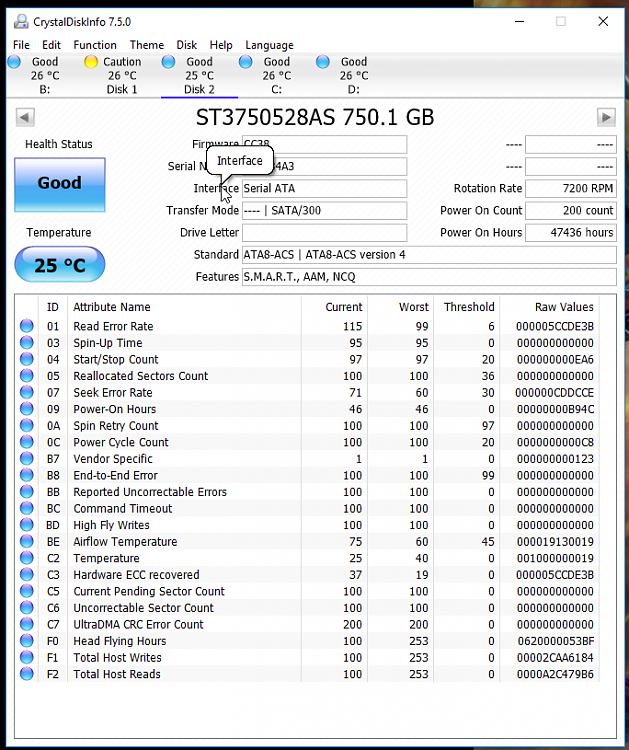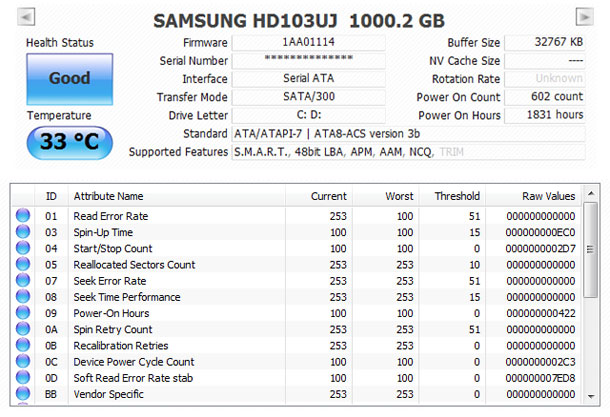

Here we can see the make, model, firmware, runtime and other general information about the drive or SSD.

We must keep in mind that a high temperature can damage the device, so it is advisable to keep them as low as possible. It averages all the values and tells us what state the drive is in. Among the information that the program shows us we can highlight: To open the program, we must double-click on the file " DiskInfo.exe ("DiskInfoX64.exe" in the case of the 64-bit version) and the main program window will open.Īs we can see, the status of all hard drives and SSDs that we have connected to our computer will appear here. Once the application (portable, in our case) has been downloaded, we unzip it and we will see all the files that make up the program. The portable version works fine, so we recommend using this version.

USB Memory (SAT) : Access USB Memory using SCSI ATA TRANSLATION Intel/AMD RAID (CSMI) If external disks are no response, you have to change this options. Select command type for USB/IEEE 1394 support.

But, it may cause trouble on a part of envrionment (Intel ATA driver etc…). It may improved compatibility on a part of envrionment (old ATI chipset). information on a disk which reports not support S.M.A.R.T. Search ScsiPort0 ~ 15 + ScsiTargetID 0~7.If you register CrystalDiskInfo to Taskbar of Windows7~, we recommend you to select “Minimize”. Set wait time for auto disks ditection or disabled this feature Raw Values See Health Status Setting Temperature Type This feature enabled to apply AAM/APM Settings on boot up or detecting new disks. See AAM/APM Control Auto AAM/APM Adaption


 0 kommentar(er)
0 kommentar(er)
